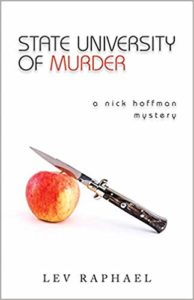The New York Times recently told the chilling story of a woman doctoral candidate who left her doctoral program in the late 1960s because she was sexually harassed and assaulted. As she recounts it:
“There was no word for sexual harassment, there was no language for this, there was no Title IX, no administrator to report it to. I felt shame as if I had done something wrong, and there was no recourse. So I left.”
Well, despite Title IX and administrators to report such conduct to now, two women I know at the university where I was recently a visiting assistant professor were not a whole lot better off. They each felt that their complaints about a graduate student they accused of stalking, harassment, and assault were grossly mishandled. One woman was my office mate, the other was a student who had taken five courses with me, and gone on a summer abroad program in London that I co-taught. Disgusted, my office mate left Michigan, and my student left the university before graduating because staying there was too traumatic.
 Their stories and similar ones around the country inspired my new mystery State University of Murder.
Their stories and similar ones around the country inspired my new mystery State University of Murder.
Real people, places, events have never gone directly into my fiction: they’re transformed in myriad ways. Those two women were widely covered in the media and their stories raised questions about administrative arrogance, malfeasance, and lack of humanity. Traits that administrators at universities across the country demonstrate all too often. I hear horror stories from friends who are teaching, and have heard them whenever I speak at a college or university. Sooner or later somebody tells me about high-handed, grossly overpaid administrators. It’s a national scandal.
In State University of Murder, professor Nick Hoffman has survived a mass shooting to find himself in a renamed department which has been moved to a different building in an attempt to tamp down the bad publicity generated by the shooting. The brand-new new chairman, an import from France, is the height of grandiosity, not surprisingly with a first name like Napoléon. Is the chairman mercurial and contemptuous? Does he alienate nearly everyone he comes into contact with? Does he evoke murderous rage? Absolutely.
As the mystery builds, I pay tribute along the way to the former assistant professor and the student who shared their stories with me. And to the women students and faculty who find their universities toxic despite how far we’ve supposedly come from the 1960s.
Lev Raphael is the author of twenty-six books in genres from memoir to mystery and teaches creative writing online at writewithoutborders.com where he also offers editing services. His latest academic mystery is State University of Murder and his June workshop is Mystery Writing 1.0.
